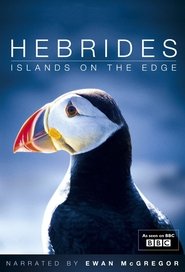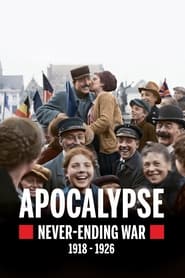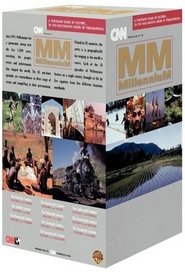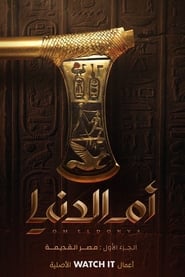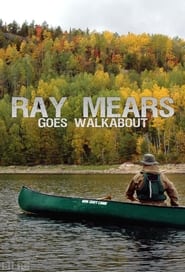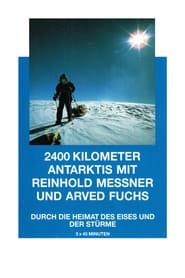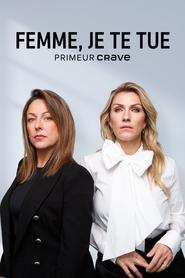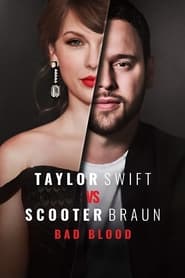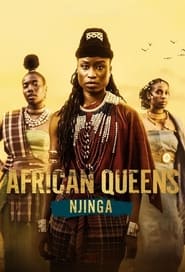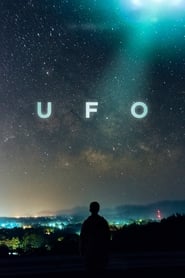Best Documentary TV Series - Page 237
-
Hebrides: Islands on the Edge
2013
star 10Four years in the making, this is a privileged view into the lives of a cast of Hebridean animals in this landmark four-part series narrated by Ewan McGregor. Among the animals featured are basking sharks and white-tailed eagles, as well as red deer stags battling to win their mates and seals struggling to protect their newborn pups. -
Oregon Field Guide
0000
star 10Oregon Field Guide is a weekly television program produced by Oregon Public Broadcasting focusing on recreation, the outdoors, and environmental issues in the state of Oregon. Part of the Oregon zeitgeist, it is produced and hosted by Steve Amen. Named for the field guides used to identify plants, animals, and natural phenomenon, the wide-ranging series covers Oregon natural history, outdoor recreation, conservation, agriculture, rural life, and other local subjects. Produced with deep narratives rather than short segments, 13 half-hour and one full-hour episodes are shown per year. -
After the Attack
2008
After the Attack
2008
After the Attack is a reality television series on Animal Planet. It tells the stories of animal attack victims, recreating each story every episode. The series premiered March 4, 2008. -
Nova: Ancient Earth
2023
Nova: Ancient Earth
2023
Witness the dramatic history of Earth, from its birth to the emergence of humanity. -
Apocalypse: Never-Ending War (1918-1926)
2018
star 7.8November 11, 1918. The world emerges from the most horrific conflict ever known. While leaders of the victorious countries design a new world order, traumatized societies struggle to find their footing. In the aftermath of war the Russian, German, Austro-Hungarian and Ottoman Empires fall apart, currencies fluctuate wildly, and vast numbers of refugees flee misery. Before long, age-old hatreds, fears, and resentments resurface and drive the world to the brink of a new apocalypse. -
CNN Millennium
1999
CNN Millennium
1999
A documentary series covering the last 1,000 years. Each of the 10 episodes focuses on a single century, brought to life by five vignettes from five different locations worldwide. Inspired by Felipe Fernandez-Armesto's book, "Millennium," and filmed in 28 countries, the series is as geographically far-ranging as the world it covers. -
أم الدنيا
2022
أم الدنيا
2022
-
History Retold
2017
History Retold
2017
-
Ray Mears Goes Walkabout
2008
Ray Mears Goes Walkabout is a survival television series hosted by Ray Mears, showing Mears in Australia. The series airs on the BBC in United Kingdom, it is also shown on Discovery Channel in Canada, India, Italy, Brazil, New Zealand, Australia, Norway, Sweden, the Netherlands, Russia, and the United States. A book of the same title was released concurrently with the series. In the series Mears met one of his heroes: Les Hiddins. -
Through the Homeland of Ice and Storms
1990
In 1989, the German polar explorer Arved Fuchs and the South Tyrolean mountaineer Reinhold Messner set out together to reach the South Pole on skis without sled dogs or motor technology and then cross the entire Antarctic. There are problems right from the start because the onward transport to the starting point by plane cannot be carried out on time. Finally, the adventurers set off from Patriot Hills Base Camp on the Filchner-Ronne Ice Shelf to the Pole. The completely different character traits of the two men quickly emerge. Messner is impetuous and pushes for speed. The calm Fuchs divides his strength and consistently follows his pace during all planned breaks. On New Year's Eve 1989, the two men are warmly welcomed by the crew of the US Amundsen-Scott South Pole Station. But the much larger and more dangerous part of their adventurous continental crossing still lies ahead of them. The 3-part documentary shows one of the last great adventures of modern times in impressive pictures. -
Zembla
1995
star 9.3Zembla is a Dutch television documentary programme by VARA and NPS. The documentaries are based on in-depth research which can take months. The subjects are often controversial. A documentary in 2001 about fraud in the Dutch construction sector led to parliamentary inquiries. In May 2006 the programme exposed the fact that politician Ayaan Hirsi Ali had lied in her claim for asylum, which led to her resignation from parliament. -
Taylor Swift vs Scooter Braun: Bad Blood
2024
star 7.1Follow the feud between global poster Swift and music industry exec Braun, looking at the $300M dispute after Braun bought the rights to Swift’s first six albums. Hear from legal experts, journalists and those close to both Swift and Braun, presenting each side of the argument. -
African Queens: Njinga
2023
star 6.6Blending dramatization with documentary, this series traces the rise and reign of Queen Njinga of Angola amid family betrayal and political rivalries. -
Behind the Screen
1966
Behind the Screen
1966
Episode about the making of "The Young Girls of Rochefort". Part of a series of 'behind the scenes / making of' films produced in Belgium -
Seeing Salvation
2000
Seeing Salvation
2000
Christianity has produced some of the greatest works of art of all time, in which believers and non-believers alike can explore the great themes of life and death. It is the language in which Leonardo and Michelangelo, Dali and Rembrandt speak to us all about love and suffering, loss and hope. To mark the year 2000, these four programmes, written and presented by Neil MacGregor, Director of the National Gallery, London, consider how artists over two millennia have tackled the extraordinarily difficult task of representing Christ. Without contemporary accounts of Jesus' appearance, artists through the ages have been free to create many images of him - images that sometimes reflect the spiritual world of the artist and other times the desires of the patron or the needs of the spectator. Seeing Salvation is a four part series surveying the historical representations of Jesus Christ in Western European art and sculpture over the centuries since Roman Times. -
The Contenders: 16 for '16
2016
Revisit the most influential presidential campaigns of the last 50 years. From Jesse Jackson’s groundbreaking 1984 and 1988 campaigns to Barry Goldwater’s 1964 campaign that launched of a brand of conservatism that influenced both Ronald Reagan and Hillary Clinton. -
Don't Tell My Mother
2007
star 8.7Diego Buñuel visits countries often thought to be violent, war-ravaged and corrupt. -
UFO
2021
star 7.3Ignited by a bombshell story revealing the Pentagon had been tracking UFOs for years, the series examines the history of the phenomenon through cultural and political touchpoints, including testimony from eyewitnesses across the country.
